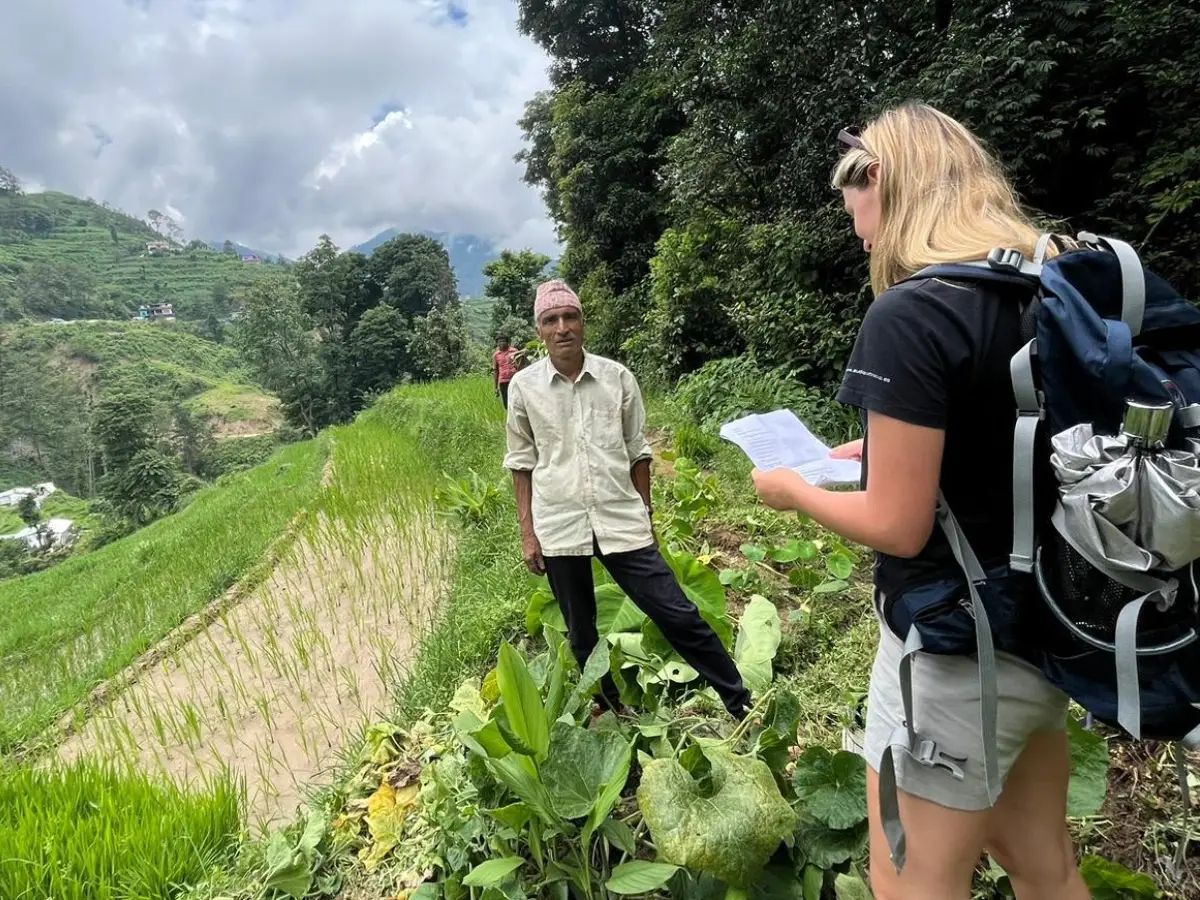
Program Overview
The Environmental Conservation Internship in Nepal offers an unparalleled opportunity to make a meaningful impact in one of the most environmentally sensitive regions of the world. Interns will work directly with local communities to address urgent sustainability and climate change challenges in the Himalayan region. As part of this program, interns will contribute to projects focused on wildlife conservation, permaculture, water management, agroforestry, and waste management, ensuring the preservation of Nepal’s unique biodiversity and ecosystems for future generations.
Nepal offers a unique opportunity for those passionate about environmental conservation, as it faces urgent climate change, biodiversity loss, and sustainable development challenges. By joining the environmental conservation internship in Nepal, you will:
- Direct Impact on Biodiversity: Nepal is home to rich biodiversity and unique ecosystems. Interns contribute directly to efforts in wildlife conservation, habitat restoration, and promoting sustainable practices to protect endangered species and ecosystems.
- Engage in Climate Action: Nepal is highly vulnerable to climate change. Interns will gain firsthand experience in climate change adaptation by working on projects that enhance resilience, such as agroforestry and permaculture in rural areas.
- Cultural Immersion and Learning: Living and working in Nepal’s diverse communities will immerse you in the local culture while offering opportunities to teach sustainable practices from international and Nepali perspectives.
- Gain Practical Skills: You will build valuable skills in sustainability, community engagement, and environmental research. Projects range from water management and agriculture to waste management and eco-tourism, offering you a well-rounded experience in conservation.
- Support Local Communities: The internship emphasizes community-based conservation by empowering local populations with knowledge about sustainable living, directly improving their resilience to environmental challenges.
- Professional Development: This internship provides access to a network of environmental professionals and can be a stepping stone toward careers in environmental science, sustainability, and climate change solutions.
Location
This internship occurs in the culturally rich and scenic areas surrounding Kathmandu, the Everest region, and Okhaldhunga. These regions are pivotal in Nepal’s conservation efforts, facing deforestation, water scarcity, and climate change impacts. Living and working here offers an immersive experience where interns engage with both nature and local communities in a sustainable development context.
Duration
The flexible internship offers commitments ranging from 4 to 20 weeks, allowing you to tailor your participation based on your availability and goals.
Goals
Interns participating in the sustainability internship will focus on achieving the following objectives:
- Promote environmental conservation practices and raise awareness within local communities
- Contribute to climate change research and its solutions
- Implement permaculture and agroforestry techniques to enhance food security through the Forest for Food program and ecosystem restoration.
- Assist with the development and management of water resources and waste management programs.
- Support wildlife conservation initiatives through community involvement and research.
Impact
The program’s impact extends beyond just the interns—it empowers local communities by improving their understanding of environmental sustainability and providing the tools and knowledge to protect their natural resources. Interns will gain practical experience while contributing to long-term environmental and community benefits, such as:
- Creating more climate-resilient agriculture practices
- Promoting eco-friendly living through waste management and recycling
- Supporting the preservation of biodiversity through wildlife and forest conservation
Helping communities adapt to climate change impacts with sustainable solutions
Primary Duties
You will be directly involved in one or various impactful projects as an intern. Your responsibilities may include:
- Conducting climate change research and assessing its local impact.
- Assisting with permaculture design and implementation, helping communities adopt sustainable farming techniques.
- Supporting water management initiatives by researching and promoting efficient water use.
- Conducting surveys and studies related to wildlife conservation efforts.
- Leading workshops on sustainability practices, such as waste reduction and energy conservation.
- Managing and implementing agroforestry projects to promote sustainable agriculture.
- Collecting data and reporting on environmental changes in local ecosystems.
- Helping build infrastructure for eco-tourism projects that promote sustainable tourism in Nepal.
- Collaborating with local organizations to support community-based conservation initiatives.
- Participate in Forest conservation programs with “Forest for Food” Initiatives that reduce conflict between wild animals and rural farmers.
- Participating in the development of green technology solutions for local problems.
Special Projects
Throughout the internship, you’ll also have the chance to participate in special projects, such as:
- Organizing community awareness campaigns on climate action
- Conducting research into climate change solutions for Nepal
- Collaborating on the development of eco-friendly technologies in rural areas
- Supporting local initiatives in waste management and recycling, helping reduce plastic pollution in the region
Sample Weekly Schedule
A typical week in the environmental conservation internship will be dynamic and hands-on. Here’s what you can expect:
- Monday to Wednesday: Field research and project work, including visits to local communities to assess environmental needs and challenges.
- Thursday: Workshop facilitation or collaboration with local farmers, focusing on sustainable practices like permaculture and agroforestry.
- Friday: Team meetings, data collection, and analysis of ongoing projects.
- Saturday: Cultural immersion activities, including exploring Nepali traditions and learning the local language.
- Sunday: Rest day for personal exploration or relaxation.
Skills Gained
This internship provides an excellent platform for building both technical and soft skills, including:
- Technical Skills: Knowledge of agroforestry, permaculture, sustainable agriculture, and wildlife conservation
- Leadership and Communication Skills: Learn to organize, coordinate, and lead community workshops on sustainability topics
- Research and Analytical Skills: Conduct impactful research in the field of climate change, water management, and other environmental topics
- Cross-Cultural Competency: Build intercultural communication skills as you work with local communities in Nepal
Career Growth
The sustainability internship provides practical, hands-on experience that is highly valuable in careers related to environmental conservation, climate change, and sustainable development. Upon completing the program, you will gain access to a network of environmental professionals and receive certification.
Cultural Experience
Living in Nepal allows you to immerse yourself in its rich culture. You can experience Nepali traditions, enjoy the warmth of local hospitality, and explore stunning landscapes while contributing to sustainable development. Language learning opportunities are also available, helping you better integrate with the community.
Requirements
Ideal candidates for this eco-internship are passionate about sustainability, conservation, and environmental issues. Although prior experience in environmental studies is helpful, it is optional. Most importantly, I appreciate your enthusiasm and commitment to making a difference in wildlife conservation and climate action.
How to Apply
To apply, please:
- Complete the online application form at Volunteer Initiative Nepal.
- Submit your resume and a motivation statement.
- Wait for your placement confirmation email.
- Pay a non-refundable booking fee of 150 Euros after receiving confirmation.
- Receive pre-departure information, including training and resources to prepare you for the program.
Selection Process
Applications are reviewed within two business days. Candidates will be selected based on their alignment with the internship goals and passion for eco-volunteering and environmental conservation.
Housing
Accommodation is provided in homestays or dormitories, offering a genuine life experience in rural Nepal. These arrangements allow you to live alongside locals, learn about their culture, and be fully immersed in the community.
Meals
Interns will enjoy three traditional meals daily, including daal-bhat, a staple Nepali dish of rice, lentils, and vegetables, offering nourishment and insight into local culinary traditions.
Support System
ViN provides comprehensive support before, during, and after the internship, including pre-departure orientation, 24/7 emergency assistance, and guidance throughout your stay.
Program Fee
The program fee covers accommodation, meals, local transportation, and project-related expenses.
Additional Costs
Additional costs include visa fees, travel insurance, and personal expenses. Flights to and from Nepal are not included in the program fee.
Why Choose This Internship
This environmental conservation internship allows you to make a direct and lasting impact on the local community and the environment. You’ll gain practical experience in sustainability, climate change solutions, and wildlife conservation while immersing yourself in Nepal’s beauty and culture.
Testimonials
“I gained hands-on experience in permaculture and water management, which directly enhanced my career in environmental science. The support from ViN was incredible, and the chance to work in such a beautiful and culturally rich country was unforgettable.” – Past Intern.
Sustainable Development Goals (SDGs)
This internship supports the UN Sustainable Development Goals (SDGs), including:
- SDG 13: Climate Action
- SDG 15: Life on Land
- SDG 6: Clean Water and Sanitation
1. What will I be doing daily?
As an environmental conservation intern in Nepal, you’ll work on projects related to climate change research, permaculture, agroforestry, and wildlife conservation. Your daily tasks will include fieldwork, data collection, and assisting in sustainable development initiatives that aim to improve local communities and environments.
2. Do I need to know Nepali to participate?
No, Nepali is not required. English is commonly spoken, and interpreters are available when needed. Learning some basic Nepali can enhance your experience, but it is optional for your participation in the eco-internship.
3. What cultural experiences will I have?
In Nepal, you will be immersed in the local culture through traditional festivals, eco-tourism experiences, and visits to cultural sites. You will interact with local communities and gain insights into Nepal’s sustainable agricultural practices, such as permaculture and climate-resilient agriculture.
4. Is this internship suitable for someone with no prior environmental experience?
Yes, the internship is beginner-friendly. It’s an excellent opportunity for those without an environmental background to gain hands-on experience in wildlife conservation, sustainable development, and climate change initiatives. Support and training are provided throughout.
5. What should I bring with me to Nepal?
Pack essentials such as comfortable outdoor clothing, sturdy shoes, sun protection, and a water bottle. Bring any personal medications and a basic first-aid kit. For fieldwork, ensure you have clothing suitable for varying weather conditions.
6. Can I extend my internship duration?
Yes, internship extensions are possible based on project availability. If you wish to extend your internship, discuss your intention with your project coordinator at least a few weeks before your program ends, especially to explore areas like agroforestry or waste management.
7. What safety measures are in place for interns?
Your safety is prioritized, with 24/7 support, emergency procedures, and local healthcare contacts provided. Travel insurance is required, and all fieldwork is supervised to ensure a safe and productive experience.
Email at support@vin.org.np or WhatsApp at
Office Hours
Monday – Friday: 9:00 AM to 6:00 PM (Nepal Time)
Requirements
- Gender: Female / Male
- Minimum Age: 18+ years (16-17 years old person can volunteer but need to present parents’/ guardian’s consent letter)
- Language:English (Intermediate)
- Educational:High School Graduate
Your Experience/ Setting
Upon your arrival at Kathmandu Tribhuvan International Airport (TIA), you will receive a warm welcome and be transported to your hotel or hostel. If you are already in Nepal before the start of your placement, we can make alternative arrangements for you. You will undergo a comprehensive two- to three-day induction program after arrival. This induction will provide valuable information about your project and general information about the Nepalese language, culture, health, safety, and security. It is also an excellent opportunity to connect with fellow volunteers and interns who can become your companions for sightseeing and a source of support throughout your volunteer placement.
During the induction period, you will be accommodated in a budget hotel or hostel arranged by VIN. However, most of the VIN experience involves living with a Nepalese host family. While this immersion is essential for a complete experience, we understand that it can be challenging as you adapt to a new culture and adjust to facilities that may be more basic than you are accustomed to. Don’t worry; all our host families have experience accommodating volunteers, although their English-speaking abilities may vary. Also, you will have 24-hour access to our staff members for support and assistance throughout your placement.
Volunteers will be assigned to one of VIN’s working areas, which include Tarakeshor Municipality in Kathmandu, Taluwa, Thulachhap, and Bhadaure in Okhaldhunga, and Okharpouwa and Kaule in the Nuwakot district. While at the working site, volunteers are requested to bring their lunch box, water bottle, safety gear, face mask, and any other essential belongings. We advise volunteers to dress comfortably and modestly, preferably with long sleeves. Please get in touch with us for guidance and support if you want to raise project funds or collect project-specific resources. This will help the community a lot.
Schedule and Commitment
You will work five to six days a week, up to six hours per day. You may propose your preferred time and hours; however, the working time period will be dependent on the institution you have been placed. A minimum of 2 weeks’ time commitment is expected of a volunteer. The longer you commit; the better impact you can make. You should be willing to commit a certain amount of your free time and energy, show a lot of commitment and be a good listener. You are expected to work constructively and co-operatively maintaining good reputation and standards at all times. Volunteer should abide by relevant security concerns and access procedures. Moreover, you should be receptive and positive to performance appraisal, advice and feedback. Throughout your placement, you will have the full support of VIN. Your safety is our highest priority.
Your typical day might look like this:
| 07:00-08:00 | Tea/Leisure Time |
| 08:00-09:00 | Breakfast/Brunch (Nepali meal – Daal-Bhaat) |
| 09:00-10:00 | Preparation for sessions |
| 10:00-13:00 | Deliver training sessions/Workshops |
| 13:00-14:00 | Lunch (Packed lunch) |
| 15:00-17:00 | Deliver interactive sessions for youth clubs |
| 17:00-20:00 | Preparation for next day/Leisure time |
| 20:00-21:00 | Dinner (Nepali meal – Daal-Bhaat |
You will receive a clear and concise on-the-job instructions, course of action, context of work and policies/strategies before your placement begins. You will be provided with ample of guidance and support throughout the placement with trainings / onboarding sessions incase necessary. You will be in a constant communication and regular check-in with the VIN volunteer coordinator. VIN aims to maintain a culture of continuous feedback between the volunteer supervisor at the placement to monitor the performance of the volunteer and ensure the project delivers desired outcomes.
In case of an emergency, you may contact one of our Volunteer Coordinators who will be available anytime for your assistance and support.
Click here to Learn more on how volunteering works
Mid and Long Term Volunteers:
2 weeks minimum stay- € 380
3 weeks – 480€
4 weeks – 580€ (after 4th week, for each additional week €95)
University Internships:
4 weeks minimum stay- € 680 (for each additional week – €105
Click here to Learn what’s included and excluded in our Fees Section
Click here to Learn recruitment process on how volunteering works
Our projects are open year-round, and our inductions begin on the first and third Mondays of each month. We would like to ask that volunteers arrive one day before the start of the induction. You can choose the duration of your participation based on your available time. However, so that you know, our volunteering placements are limited. We highly recommend booking your placement in advance to secure your placement. Click here to apply.
Are you ready to make a tangible difference? Join the Environmental Conservation Internship in Nepal and contribute to critical environmental efforts while gaining valuable professional experience. Apply now and be part of the solution!

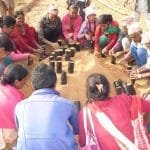
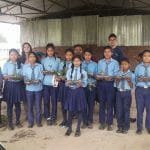

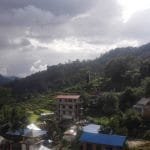
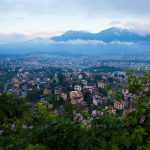

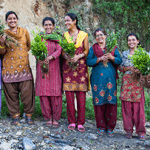
 Member of
Member of